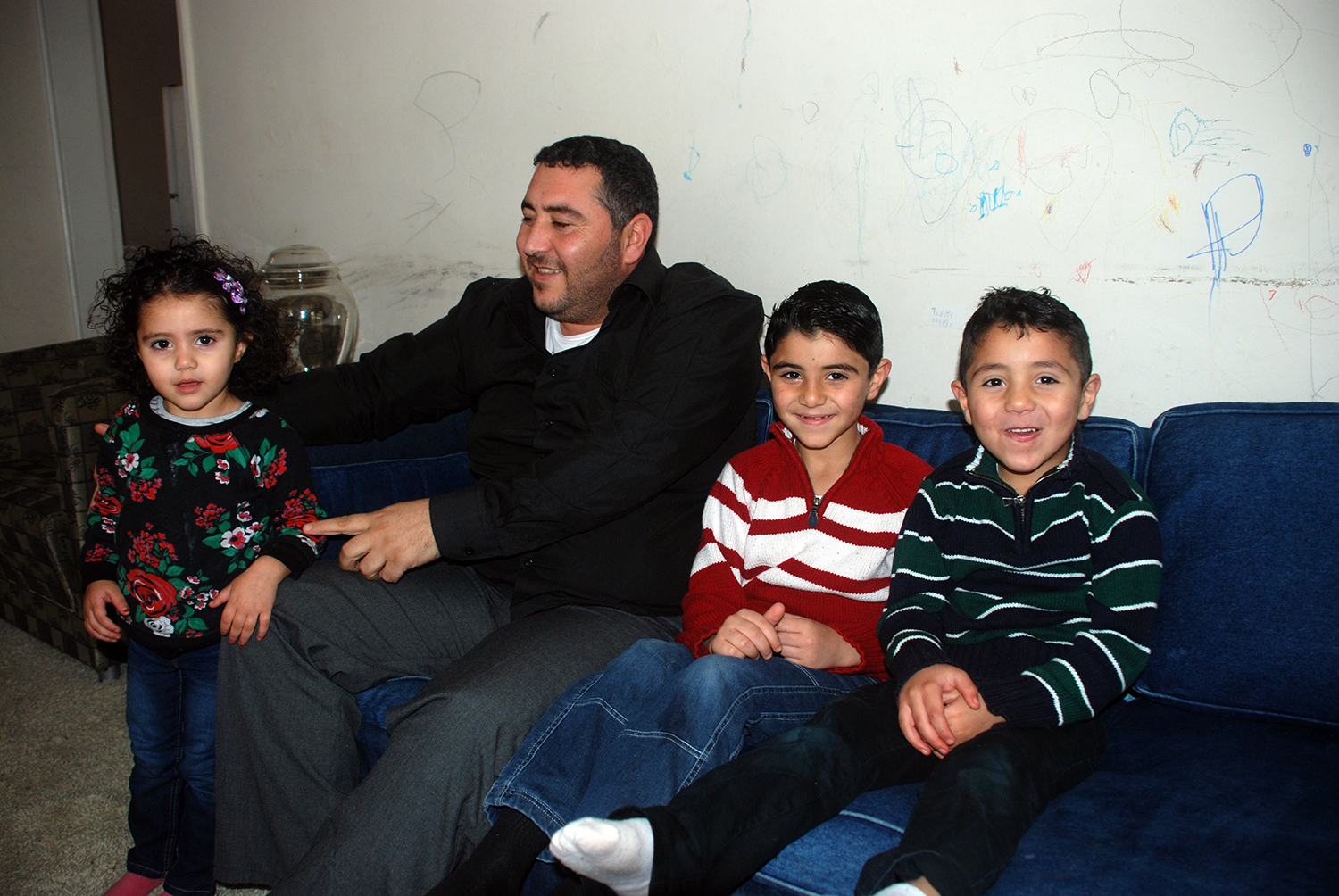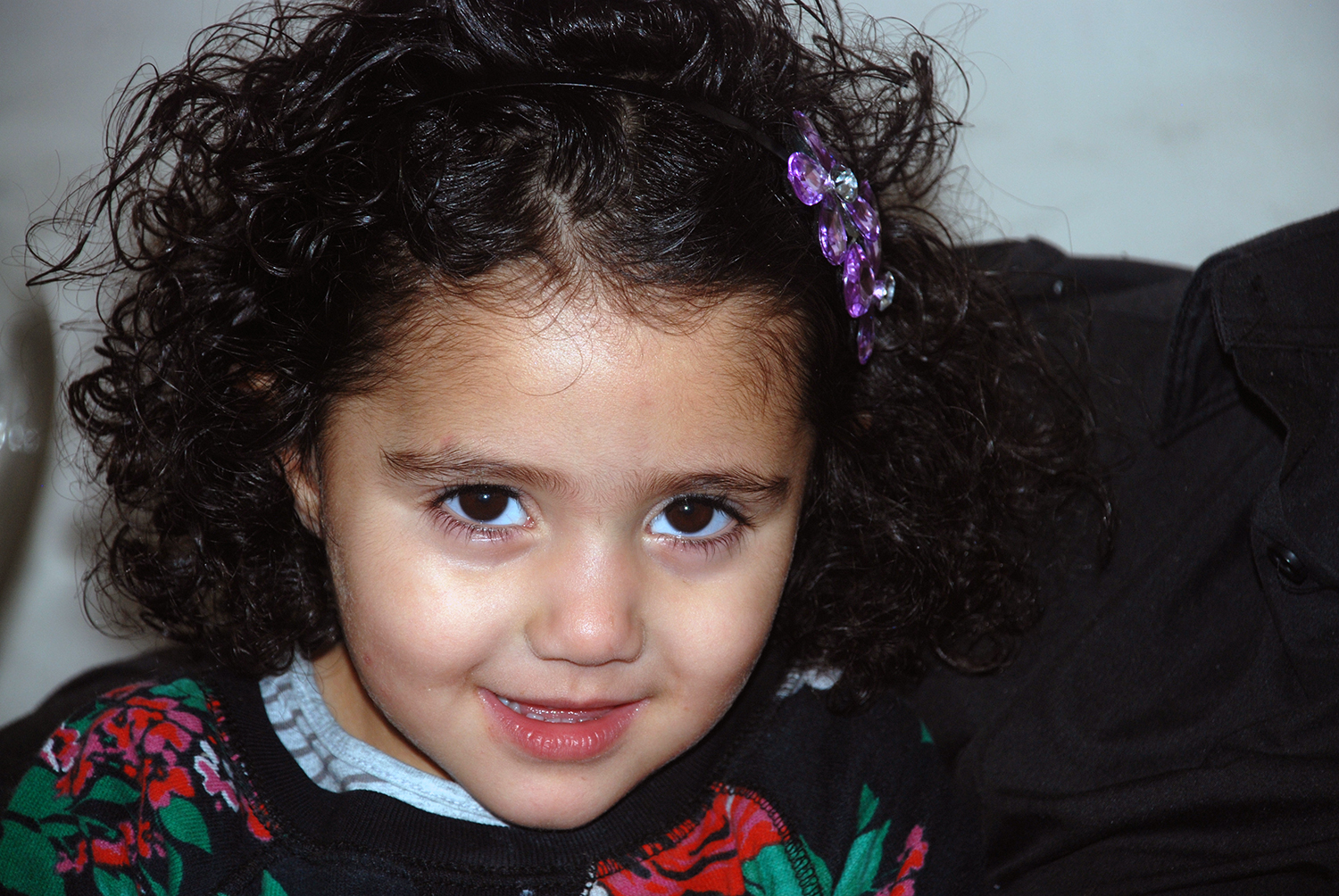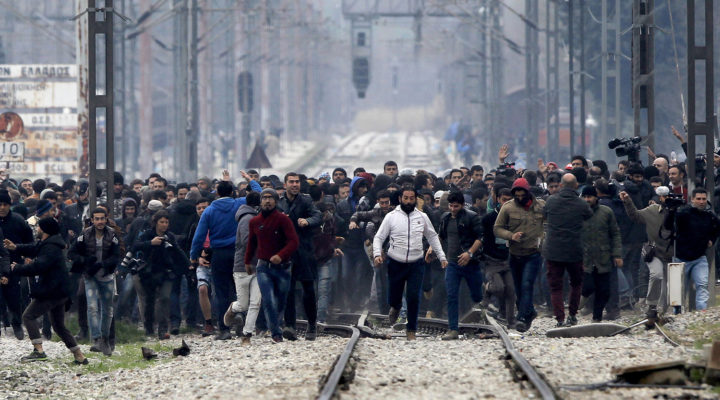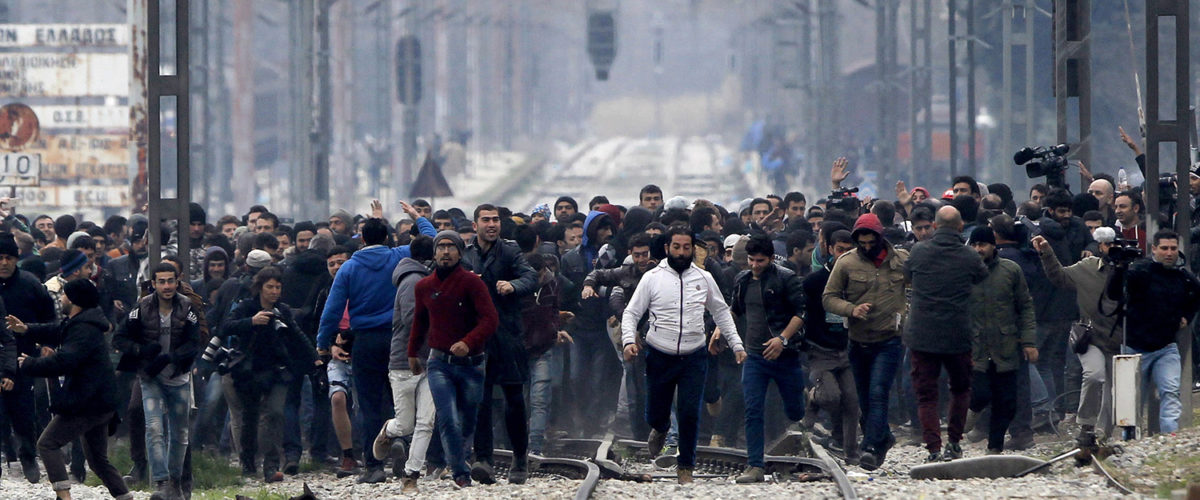After President Trump’s executive orders, the future of U.S. refugee resettlement programs is uncertain. This is the first in a series on what that might mean for Syrians fleeing their war-torn country. Tomorrow: Volunteers in refugee programs fulfilling biblical mandate to care for strangers.
A visit in the afternoon prompted a flight that night.
When a recruiter told Nasur al-Ghazali that he was expected to re-enlist in Syrian dictator Bashar Hafez al-Assad’s military to fight in the ongoing civil war, Nasur knew that to refuse was to die.
To agree would likely seal a similar fate.
That February night in 2013, Nasur and his wife, Nourshan, hurriedly packed a few belongings, gathered their young sons Mohammad and Jamil, engaged a covert ride toward the Jordanian border, and shed their former lives.
Security blockades stopped their ride five-and-a-half miles from the border, so they finished their 10-hour journey on foot. They arrived at a refugee camp in Jordan with an armful of belongings and 15,000 Syrian pounds. The equivalent of $70, the money lasted five days.
Nasur’s family found conditions at the camp in Jordan deplorable. Their tent leaked. Water was undrinkable. There was neither medical care nor electricity. His boys were often sick.
Like many other refugees, Nasur’s family left the camp and moved into the city of Irbid. He found odd jobs, working illegally and taking pay under the table. While on a roofing crew he fell three floors to the ground, severely injuring his ankle.
 Eventually — in a process still unclear to Nasur — an immigration officer at the camp selected his family as eligible for resettlement in the United States, kicking off an extensive vetting process.
Eventually — in a process still unclear to Nasur — an immigration officer at the camp selected his family as eligible for resettlement in the United States, kicking off an extensive vetting process.
The al-Ghazali family arrived July 28, 2016, at the Greensboro, N.C., airport, where representatives of World Relief and the Good Neighbor team from Ardmore Baptist Church in nearby Winston-Salem greeted them.
They had $950 each to get settled in America. The money was provided by the U.S. government and managed by their caseworker. Their only other resource is the good will and commitment of their sponsoring church, and the local mosque, which has helped resettle Muslim refugees in the area.
Nasur found work quickly, but almost immediately, his ankle injury surfaced, and he had to have surgery. That put him out of commission for 12 weeks — the very amount of time he is allotted to become financially independent. Ardmore and the mosque rallied to help.
 One criterion for resettlement is that the refugee does not intend to return to the country he fled. Would Nasur want to return to Syria?
One criterion for resettlement is that the refugee does not intend to return to the country he fled. Would Nasur want to return to Syria?
“There is no more Syria,” he said through an interpreter. “Whatever grows from what once was Syria will be different.”
Should he go back at this point, Nasur feels certain he would be either imprisoned or killed. Three friends who returned to Syria from Jordan are now dead. A fourth is in prison.
Nasur’s extended family is in Jordan, but his closest relatives remain in Syria with “really bad” living conditions. They talk frequently by phone.
While Nasur is glad to be in the United States, it doesn’t compare to the family’s quality of life before they were disrupted by war.
Nasur had more surgery on his ankle to repair the poor operation done in Jordan. He hoped to have time to recuperate and acclimate, but he feels an urgency to find a job and become self-sufficient.
He understands why some citizens might resent refugee families, but to him it’s all a global family.
“Everybody around the world has a responsibility to help refugees,” Nasur said. “Syrians helped refugees in previous area conflicts. There is a contract among the countries of the world that helps people in need, and that’s what needs to happen.”


